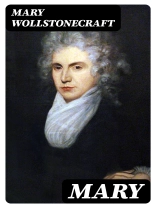In her groundbreaking novel ‘Mary, ‘ Mary Wollstonecraft explores the complexities of female identity and autonomy in a patriarchal society. Set against the backdrop of late 18th-century England, the narrative weaves together rich character development with feminist themes, examining the struggles of its titular character as she seeks to assert her independence and achieve self-realization. The prose is marked by a bold, passionate tone, reflecting Wollstonecraft’s advocacy for women’s rights and her challenge to the conventions of her time, resonating deeply within the literary context of Enlightenment ideals and Romanticism. Mary Wollstonecraft, an icon of early feminist thought, was driven by her own experiences of social injustice and personal hardship. Born into a tumultuous family, she became a teacher and writer, advocating for the education and empowerment of women. Her seminal work, ‘A Vindication of the Rights of Woman, ‘ laid the groundwork for her exploration in ‘Mary, ‘ where she continues her inquiry into the constraints imposed on women, illuminating the necessity of both personal and societal change. ‘Mary’ is an essential read for anyone interested in feminist literature and the evolution of women’s rights. Wollstonecraft’s insightful examination of identity, alongside her masterful storytelling, provides readers not only with a compelling narrative but also with a challenge to reflect on the ongoing struggles for equality. Immerse yourself in this revolutionary work that remains profoundly relevant today.
Про автора
Mary Wollstonecraft (1759–1797) was an English writer, philosopher, and advocate of women’s rights. During her brief career, she wrote novels, treatises, a travel narrative, a history of the French Revolution, a conduct book, and a children’s book. Her most famous work is ‘A Vindication of the Rights of Woman’ (1792), wherein she argues that women are not naturally inferior to men but appear to be only because they lack education. She posits that both men and women should be treated as rational beings and imagines a social order founded on reason. Her novel ‘Mary: A Fiction’ (1788) is a lesser-known, yet noteworthy book that intertwines issues of female independence and education reflective of her philosophical ideals. Remarkably, Wollstonecraft’s passionate advocacy for equality has been recognized posthumously, as her early demise hindered her receiving the recognition she deserved during her lifetime. In her personal life, she married philosopher William Godwin, and their daughter, Mary Shelley, became a respected writer as well, famously authoring ‘Frankenstein’. Wollstonecraft’s works have continued to inspire the feminist movement centuries after her time, and her literary contributions are celebrated for their foresight, depth, and influence on social thought and the persistent pursuit of gender equality.












